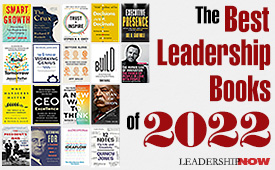5 Leadership Lessons: Artistry Unleashed
I received several requests to explain further the artistry in leadership. In
Artistry Unleashed, Hilary Austen has included interviews with business people and professionals concerning their approach to their work. Their comments help to understand the application of qualitative thinking and artistry in the practice in leadership:

Eric Thomas teaches horsemanship and explains the need for awareness in the moment: “Everybody who rides has the same problem: we’re hoping what we learned yesterday will always apply. You often ride the problem you had a minute ago, or for the goal you want to achieve. But this is not a recipe. It changes every second, and you’ve got to change with it.”

Scott Cook, Intuit co-founder talks about surrendering to surprise: “I’m a big believer—and this is something I’ve come to learn—in savoring surprises. If there’s something that’s really a big surprise, upside or downside, that’s generally the real world speaking to you, saying there’s something you don’t yet understand.”

Here are a couple of comments from University of Toronto assistant professor of psychiatry Melanie Carr and could easily apply to leading in the moment—developing artistry in your leadership: “What I love about psychiatry is that it’s a blend of art and science. No matter how much we are able to see patterns and make predictions based on our scientific understanding, no two people are ever exactly the same. So, as a practitioner, your eyes have to remain “fresh.” I like the juxtaposition of pattern recognition and being mindful. People are like a puzzle. There are patterns and there are recurring patterns. But no one is the same. So you can never just pull out one thing and say, ‘I’m going to do this every time.’”

Gerry Mabin founder of Mabin School in Toronto: “In public schools, the curriculum is constantly pummeled down. And so a teacher has to teach in units. You know, we’re going to do our unit in geometry for a certain number of days, and then move on to the next unit. There’s no revisiting, no integration. It’s all tightly boxed. It’s a killer.” And he adds: “When you’re actually teaching, you’re honing everything; you’re customizing everything. Every question you’re asking, every decision you make, you’re reacting to what’s happening at the moment with the children, whether it’s one child or whether it’s a group of them.”

To me, this final comment by Hilary Austen applies to the art of leadership and leading in context (situational): “When awareness guides action, the application of skill can leave the realm of mere mechanics. Skill then flows in response to awareness of immediate or anticipated qualities. This means skill works automatically and responsively, rather than in reference to a recipe or a routine.”
Related Interest:
 Leadership: Artistry Unleashed
Leadership: Artistry Unleashed
Posted by Michael McKinney at 12:53 AM
Permalink
| Comments (0)
| TrackBacks (1) | This post is about Five Lessons








